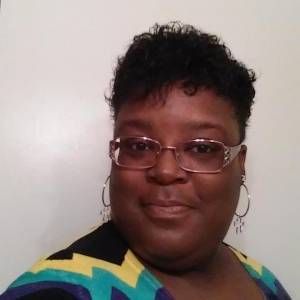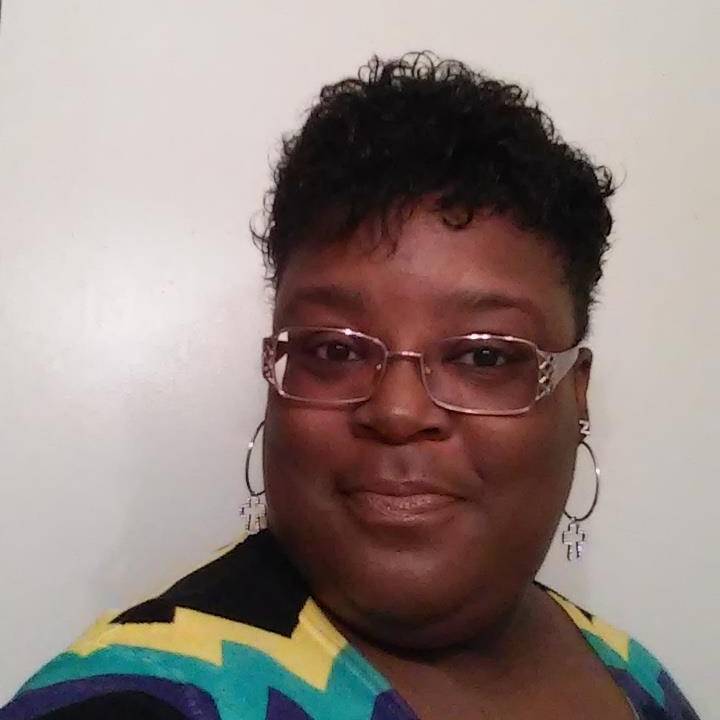Every day, most of us wake up and don’t think about the fact that we are able communicate with one another without thinking about it. It’s not a struggle and it almost comes as second nature. What we don’t realize, is that there are many people out there where this skill does not come naturally and it’s something they need to work at every day.
 Meet Nechele Johnson, a life-long resident and teacher in Urbana, who has dedicated her life to helping those individuals. Certified in teaching students with dyslexia, she takes children whose lives are affected by learning disabilities, and gives them another chance. According to the National Institutes of Health, dyslexia “is a specific learning disability that is neurological in origin. It is characterized by difficulties with accurate and/or fluent word recognition, and by poor spelling and decoding abilities.” Children with this learning disability often struggle in school with reading, writing, and spelling despite having average intelligence, and they require specific, individualized instruction, often with a special education teacher or tutor like Nechele. Having been in the business for 24 years, it’s hard to say how many lives Nechele has touched and changed for the better. Earlier this week, I had the privilege to sit down and chat with her about her work and discuss why she does what she does.
Meet Nechele Johnson, a life-long resident and teacher in Urbana, who has dedicated her life to helping those individuals. Certified in teaching students with dyslexia, she takes children whose lives are affected by learning disabilities, and gives them another chance. According to the National Institutes of Health, dyslexia “is a specific learning disability that is neurological in origin. It is characterized by difficulties with accurate and/or fluent word recognition, and by poor spelling and decoding abilities.” Children with this learning disability often struggle in school with reading, writing, and spelling despite having average intelligence, and they require specific, individualized instruction, often with a special education teacher or tutor like Nechele. Having been in the business for 24 years, it’s hard to say how many lives Nechele has touched and changed for the better. Earlier this week, I had the privilege to sit down and chat with her about her work and discuss why she does what she does.
Answers have been edited for length and clarity.
SP: So, how long have you lived in Champaign-Urbana?
Nechele Johnson: All my life. Except for when I went to college.
SP: Did you go to U of I?
Johnson: For Grad School, I did, (to be certified in) mild to moderate disability.
SP: How did you get started working with children with special needs, specfically dyslexia?
Johnson: Well, dyslexia is just a language disability. At our schools, we’ve recently started being able to use that label. So as far as that, I’ve been working with it all my life, about 24 years. If you want to get technical, with dyslexia it’s been about the same since we’ve just recently changed the name.
SP: I’m an English major, so I can’t imagine having difficulty reading or communicating. I think people take it for granted how easily it comes to them.
Johnson: Now, it may not necessarily be reading. It’s a language disability; so, it could be writing, it could be spelling. It’s a spectrum. So, someone could read fluently but not be able to write or spell. Or you could be able to spell, but not be able to organize a sentence. Or it could be all of it together.
SP: I think when a lot of people hear the term “dyslexia” they think reading. That the words get jumbled or confused, and that’s all it is. I think there’s a whole side of it that people aren’t aware of.
Johnson: Yes, there is.
SP: Do you work with children of all disabilities, or do you mainly focus on children with dyslexia?
Johnson: All of them. Mild to moderate disabilities. I’ve worked with individuals with down syndrome, autism, behavioral/emotional disorders, learning disabilities…really everything. I’ve got three jobs: I work for Urbana School District, Danville Dyslexia Center, and then I have my own private practice, where I work with individuals with dyslexia.
SP: Do you think that there could be an adjustment within Champaign-Urbana schools to be more accommodating to children with dyslexia?
Johnson: I think we’re trying very hard as far as disabilities as a whole. I think we’ve got some good leadership in that. I was told that was, and I think I still am, the only person in Urbana, and the Urbana schools, who is certified specifically with dyslexia. So, I think it’s lacking. Now, since they (the state) have allowed dyslexia to be a true disability, and parents are being more aware, they are asking for specific things for their child. But there are a lot of differences in the way an individual is taught, so that’s where it gets sticky. An individual with dyslexia has to be taught with a systematic, structured curriculum. Even though our teachers are certified, they can use the same curriculum. We don’t have any specific criteria as to how we teach it, that’s the thing we’re lacking. We’ve come a long way, but now we’ve got to get on board with making it individualized.
SP: So, do you have to adjust your teaching methods per student? Is it always a special case?
Johnson: To the best I am able to, yes, I do individualize my instruction, but there isn’t anything out there right now, as far as dyslexia, in terms of curriculum that you can use as a group. It gets very difficult when individuals fall on different parts of the spectrum and you have to teach them all together.
SP: If you had to guess, how many kids do you think you’ve helped? It’s probably a difficult question, sorry about that!
Johnson: Oh, I don’t even know…hundreds of kids.
SP: So, you mentioned that you have a private practice. What encouraged you to start that?
Johnson: An individual’s parent called me, after seeing that I worked at the Danville center, and asked me if I wouldn’t mind tutoring his child here in town. And I just said “sure!” and then it kind of just blew up after that. Never had to pass out any fliers or business cards, it just all happened. I didn’t realize how much of a need it is in Champaign-Urbana.
SP: You’ve been doing this for 24 years. Have you noticed an increase in children with dyslexia, and the need for special education teaching?
Johnson: It’s kind of tricky, it’s hard to know with individuals if they truly have dyslexia because a learning disability can occur from many different things. I’ve had students that just needed that jump start to get started, and once I give them that, they don’t need special education anymore. It’s not once in special education, always special education. As far as in the school, yes. It seems like there are students coming to us all the time.
SP: Have you ever had a student, or moment while teaching, that really made an impact on you or stands out?
Johnson: All of them really. When their parents come back to me and tell me how their report cards were and how their parent-teacher conferences went, that really makes me feel good. Because I know that I’m doing something right.
SP: Just to wrap up, I think communication is such a valuable life skill, and the fact that you’re giving that to someone is amazing. I can’t imagine having that difficulty. I feel very fortunate that I never had to struggle. It came so easily to me, and I never imagined that for some people it didn’t.
Johnson: I feel honored, and grateful. I send myself to workshops, conferences, and take webinars so I continue to learn new things. And sometimes, I do want to quit because I’m tired. But, it’s hard for me to see individuals in need and not do something to help. And I’m sorry I talked your ear off but…this is something I’m really passionate about, and it’s what I do.








